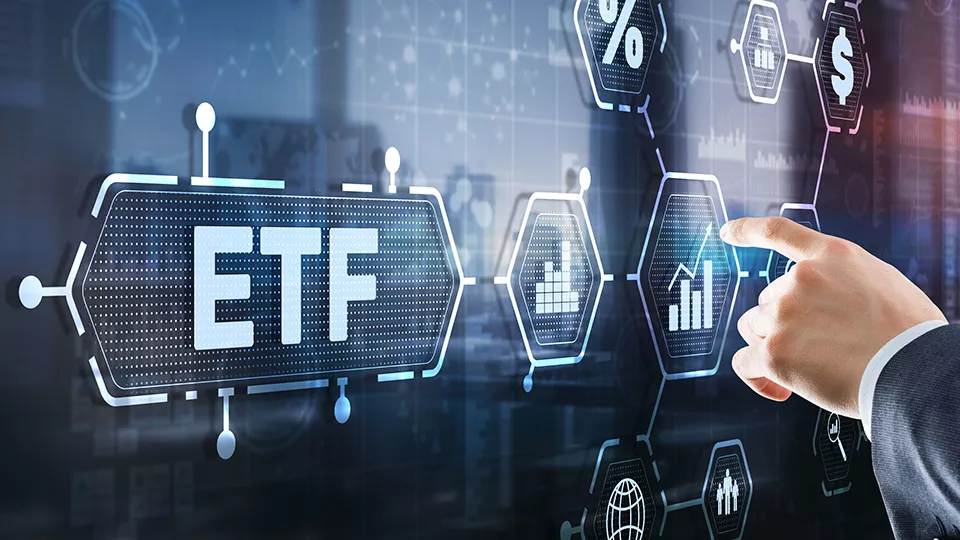In recent years, the world has witnessed a paradigm shift in the art market with the rise of non-fungible tokens (NFTs). These unique digital assets have created a whole new dimension for artists, collectors, and investors alike. As the popularity of NFTs continues to soar, the question arises: Are there NFT ETFs? In this article, we delve into the world of NFT ETFs, exploring the concept, potential benefits, and current state of this emerging investment avenue.
I. Understanding NFTs:
Unleashing the Digital Revolution
Non-fungible tokens, or NFTs, are digital assets that represent ownership or proof of authenticity for a specific item, such as art, music, videos, or virtual real estate. Unlike cryptocurrencies like Bitcoin or Ethereum, which are fungible and interchangeable, NFTs are unique and indivisible. They are built on blockchain technology, providing a secure and immutable record of ownership.
II. The Concept of NFT ETFs:
Bringing Traditional Investment to the Digital World
Exchange-Traded Funds (ETFs) have long been a popular investment option, allowing investors to gain exposure to a diversified portfolio of assets through a single trade. NFT ETFs follow a similar principle by offering investors the opportunity to invest in a diversified basket of NFTs through the convenience of a publicly traded fund.
III. Potential Benefits of NFT ETFs:
Unlocking Investment Opportunities
1.Diversification: NFT ETFs provide an avenue for investors to diversify their portfolios by gaining exposure to a wide range of NFTs across various sectors, artists, and platforms. This diversification can help mitigate risk and potentially enhance returns.
2.Accessibility: Investing in NFTs directly can be complex and require technical expertise. NFT ETFs offer a user-friendly approach, allowing investors to participate in the digital art market without the need for specialized knowledge or understanding of blockchain technology.
3.Liquidity: NFT ETFs trade on established stock exchanges, providing investors with increased liquidity compared to individual NFT purchases. This liquidity ensures that investors can enter or exit their positions at any time during market hours.
4.Regulatory Oversight: NFTs are still a nascent and evolving market, and regulatory oversight is developing. NFT ETFs, on the other hand, are subject to regulatory scrutiny and can provide investors with a sense of security, as they operate within established financial frameworks.
IV. Current State of NFT ETFs:
Exploring the Landscape
While the concept of NFT ETFs is intriguing, it’s important to note that as of the writing of this article in 2023, NFT ETFs are yet to be officially launched. However, several companies and financial institutions are actively exploring the possibility of launching NFT ETFs in the near future.
1.NFT Index Funds: Some platforms have introduced NFT index funds, which aim to track the performance of a diversified portfolio of NFTs. These index funds provide a glimpse into the potential of NFT ETFs and offer investors exposure to a broader NFT market.
2.NFT Investment Trusts: In the absence of NFT ETFs, some investment trusts have emerged, allowing investors to pool their funds to invest in a collection of NFTs. These trusts operate similarly to ETFs, albeit with certain structural differences.
V. Potential Challenges and Considerations:
Addressing the Risks
1.Market Volatility: NFTs are known for their price volatility, and investing in NFT ETFs might expose investors to similar risks. Thorough due diligence and risk assessment are crucial to ensure that potential investors are aware of the risks associated with investing in NFTs and NFT ETFs.
2.Valuation and Authenticity: Determining the value of NFTs can be subjective, and verifying the authenticity of digital assets can be challenging. NFT ETFs would need robust mechanisms in place to ensure accurate valuation and authentication of the underlying NFTs.
3.Regulatory Considerations: The regulatory landscape surrounding NFTs is still evolving, with potential implications for NFT ETFs. Regulatory clarity and compliance will be critical to the successful launch and operation of NFT ETFs, ensuring investor protection and market integrity.
4.Technological Infrastructure: NFTs rely on blockchain technology, and any disruption or vulnerability in the underlying infrastructure could impact the performance and security of NFT ETFs. Robust technological infrastructure and cybersecurity measures are essential for the successful operation of NFT ETFs.
VI. The Future of NFT ETFs:
Unlocking Opportunities for Investors
While NFT ETFs are yet to become a reality, the potential for their emergence in the future is significant. As the NFT market continues to mature and regulatory frameworks develop, we can expect increased interest from asset managers and financial institutions to create NFT ETFs to cater to the growing demand for exposure to digital art and collectibles.
The introduction of NFT ETFs would democratize access to the digital art market, allowing a broader range of investors to participate. It would also provide a regulated and transparent investment vehicle for those who wish to gain exposure to NFTs without the complexities of direct ownership.
Conclusion:
The world of NFTs has revolutionized the art market, offering artists and collectors a new way to create, sell, and own digital assets. While NFT ETFs are yet to be launched, the concept holds immense potential. By providing diversification, accessibility, liquidity, and regulatory oversight, NFT ETFs could be a game-changer for investors seeking exposure to the digital art revolution.
However, it is important to tread with caution. NFTs and NFT ETFs carry inherent risks, including market volatility and valuation challenges. Thorough research, risk assessment, and regulatory compliance will be crucial for investors considering this emerging investment avenue.
As the world embraces the digital age, NFT ETFs could pave the way for a new era of investment opportunities, unlocking the potential of the digital art revolution for investors worldwide.


